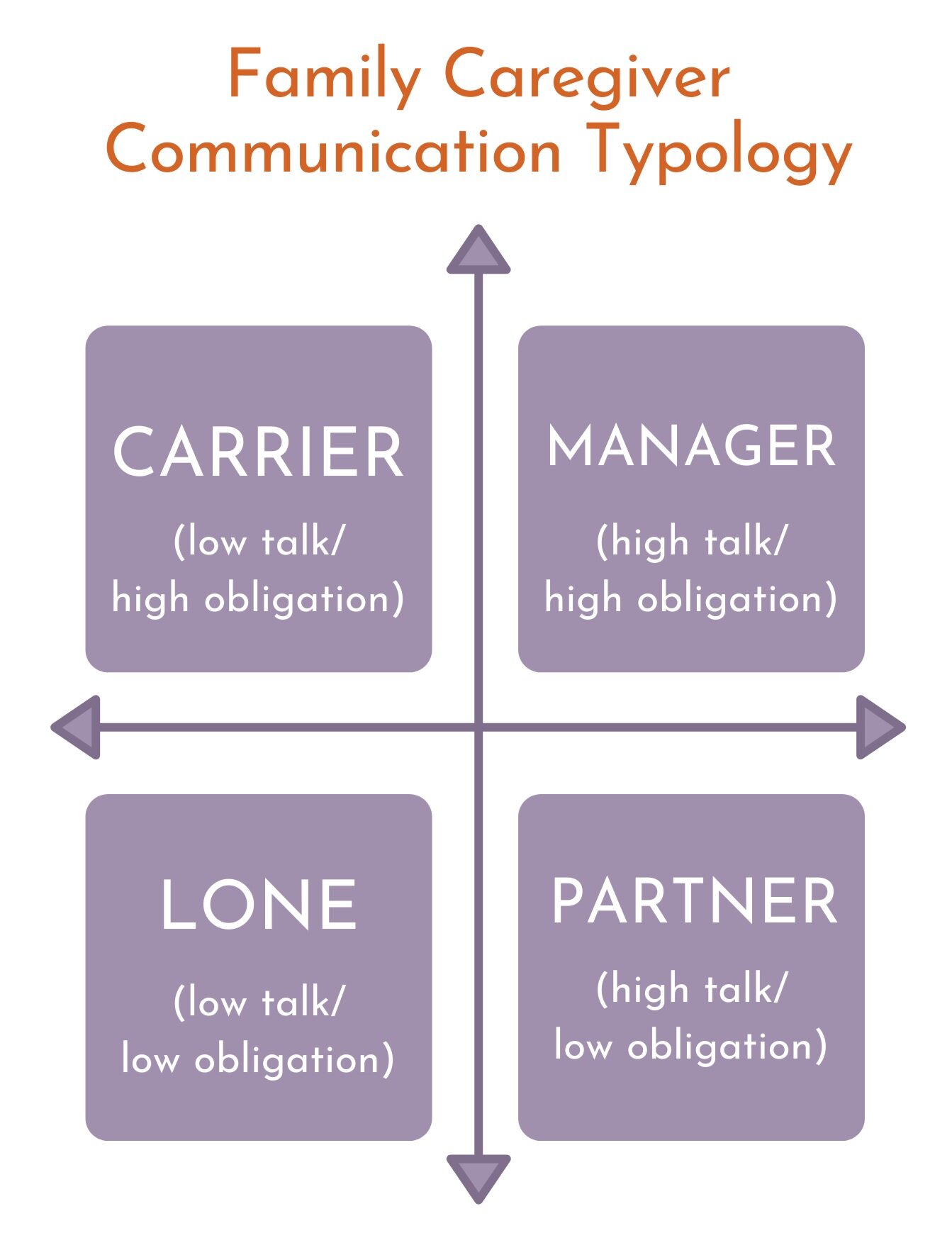Family Caregiver Communication
Determining appropriate interventions for family members may be dependent on the family system and its impact on the family caregiver. Our research has concluded that there are four prominent caregiver communication types: manager, carrier, partner, and lone. Each caregiver type depicts unique communication characteristics specific to their family communication pattern. The family caregiver communication typology suggests that communication interventions and healthcare provider communication should be tailored to the information needs and communication preferences of specific caregiver types.
The COMFORT Communication Project, LLC provides online communication training based on the COMFORT model and offers health communication resources developed through rigorous research. Resources are offered for free and should be given attribution. The following statement must be displayed prominently when using or disseminating instructional materials:
This resource is part of the COMFORT Communication Project, LLC, a national health communication program intended to improve communication in healthcare. Development of these resources have been funded in part by grants from the National Cancer Institute and Archstone Foundation. Materials are copyrighted and are used with permission. To learn more about the COMFORT Communication Project, LLC and additional resources, please visit www.CommunicateComfort.com.
Additional Resources
Family Caregiver Communication Tool — Chronic Illness
The FCCT-CI scale, with tested and published reliability and validity, offers a brief, 10-item communication assessment for family caregivers of those living with chronic illness. Intended audiences include but are not limited to cancer caregiver and palliative care contexts. Care providers can use this tool to assess, design, and test interventions to support family caregivers.
Family Caregiver Communication Tool — Cancer
The FCCT is a valid and reliable instrument for obtaining information about the frequency, range, and congruence of communication within the patient’s family. It is composed of two subscales: conversation and conformity. The FCCT is a 10-item instrument completed by the primary family caregiver about their communication with family about the patient’s illness and values and beliefs about caregiving. The purpose of FCCT is to conclude a specific caregiver type.
COMFORT Communication App
This is a smartphone application (app). As an mHealth translation of the COMFORT curriculum, it is designed to provide supportive communication tools for healthcare providers encountering communication challenges with patients, families, and team members. Written at a sixth-grade level, it offers practice suggestions to support healthcare providers. When tested, participants found it easy to use and navigate, indicating they would use the app with patients, families and other team members. A revised version now includes COVID-19 communication resources for providers.
Goldsmith, J., Wittenberg, E., Ferrell, B. (2015). An App to Support Difficult Interactions among Provider, Patient, and Family. Journal of the Advanced Practitioner in Oncology. 6(5), 479-483. doi: 10.6004/jadpro.2015.6.5.8
Communication Guide for Caregivers
Based on the principles of the COMFORT™ communication curriculum, this guide supports family members of cancer patients, addressing how to communicate with the patient, other family members, family members who are far away, and health care providers. It contains practical examples and words of advice to aid family caregivers in their loved one’s cancer journey. The guide is written at the sixth grade level. It has been tested among family caregivers and was found to be readable, relatable, and easy to understand. Caregivers expressed a need for this material and a desire to have it earlier in the illness course.
Wittenberg, E., Goldsmith, J., Ferrell, B., & Ragan, S. L. (2016). Promoting Improved Family Caregiver Health Literacy: Evaluation of Caregiver Communication Resources. Psycho-Oncology. NIHMSID: 766734


